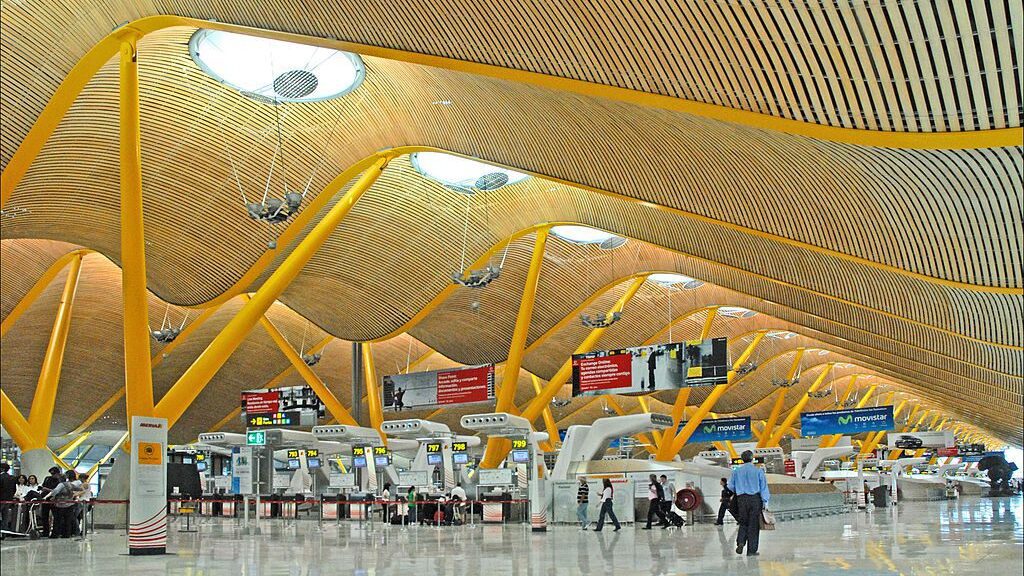
Barajas Airport in Madrid
Photo: Jean-Pierre Dalbéra from Paris, France, CC BY 2.0, via Wikimedia Commons
Three Moroccan asylum seekers escaped from a reception room at Madrid’s Barajas Airport on Sunday night, marking the second such incident in just over a week. The individuals were among a group of six asylum seekers waiting for their international protection requests to be processed. While three were apprehended by the National Police, the other three remain at large. This latest escape has further intensified concerns over the deteriorating conditions at the airport’s detention facilities.
The Objective reports that sources from Spain’s Interior Ministry and the police union Jupol said the asylum seekers managed to escape through a hole in the ceiling of one of the airport’s reception rooms, the same breach used by four other Moroccan asylum seekers during a similar escape on October 2nd.
The fact that the hole had not been repaired despite the previous incident has sparked criticism. Ibón Domínguez, a spokesman for Jupol, condemned the situation, saying that “the non-admitted room of Barajas does not meet the minimum conditions of safety and health.”
Jupol has called for immediate intervention from various government bodies to remedy the “unacceptable” situation, accusing both the Ministry of the Interior and AENA, the company responsible for managing the airport, of neglecting the issue.
This incident is just one example of a broader crisis unfolding at Barajas Airport. Reports in January said the asylum and inadmissible persons’ rooms had become overwhelmed by an influx of migrants, many of whom had arrived in Spain as a stopover on their way to other European destinations.
The Unified Police Union (SUP) said these rooms, designed to accommodate no more than 50 people, now regularly house up to 150 individuals at any given time. Conditions have deteriorated significantly, with overcrowding, unsanitary facilities, and a lack of adequate resources.
The SUP reported instances of bedbugs, cockroaches, and unclean bathrooms in these overcrowded rooms. Migrants, including families with young children, were often forced to sleep on inflatable mattresses on the floor, with little to no access to basic amenities such as showers. The situation became so dire that, in mid-January, at least 26 migrants managed to escape.
